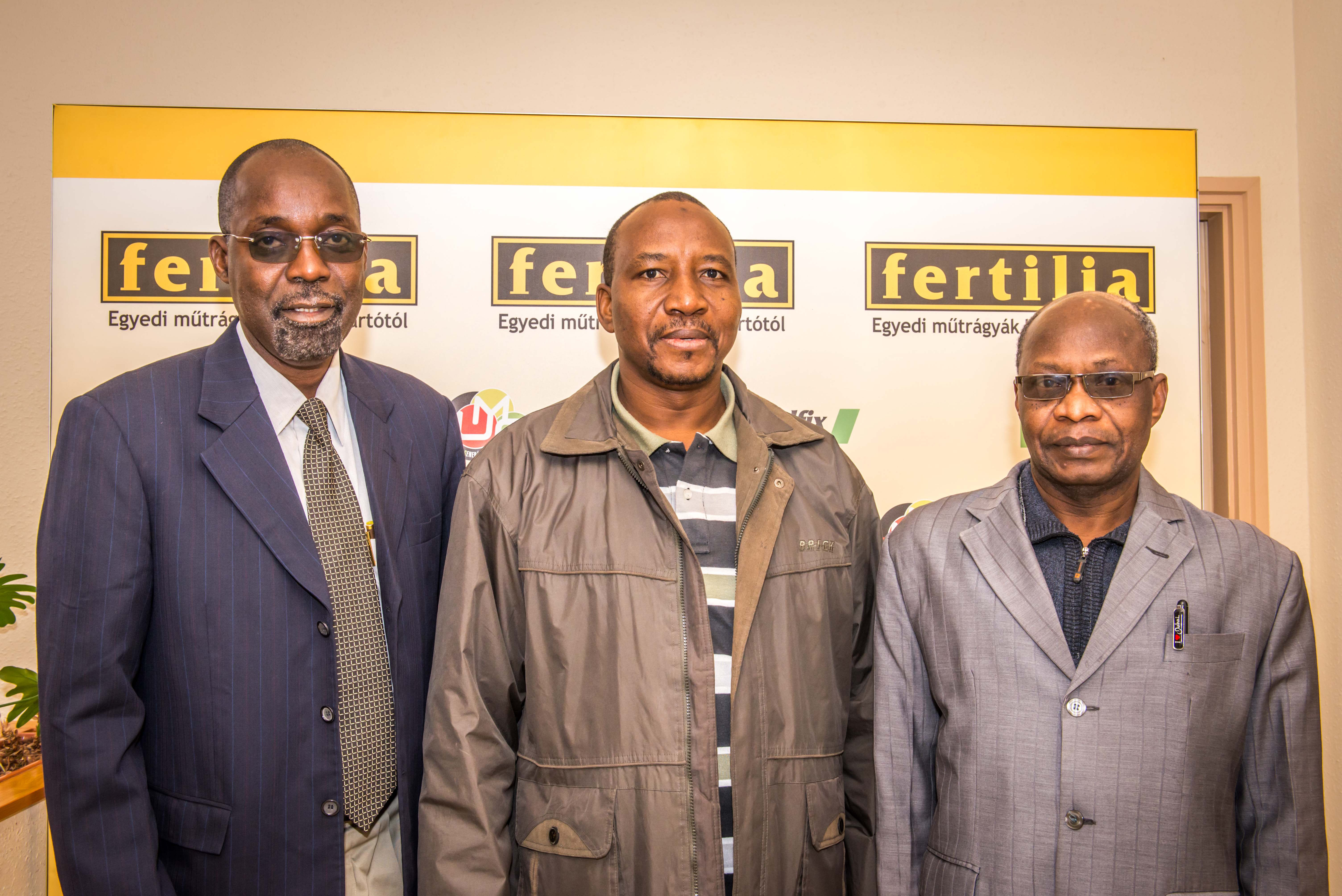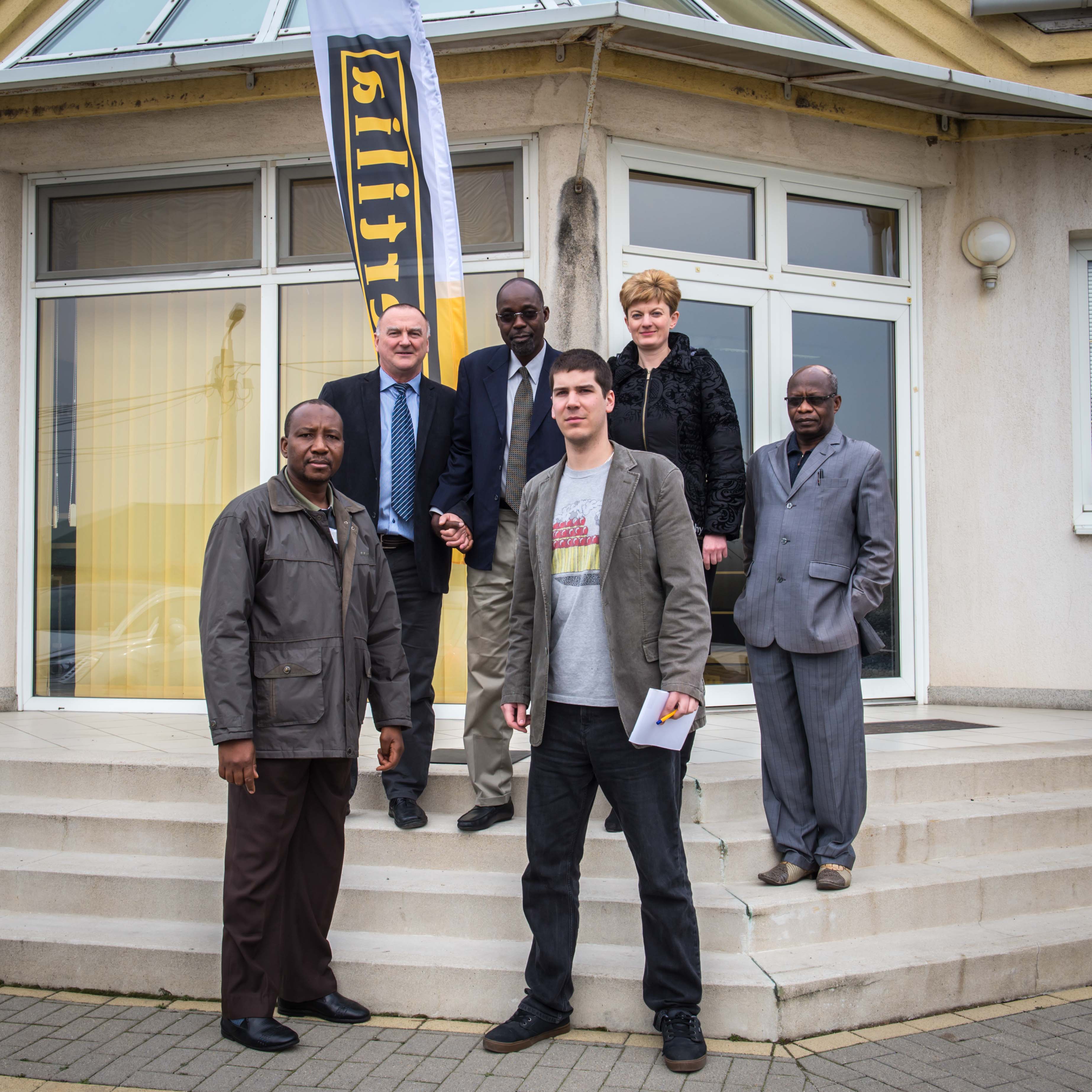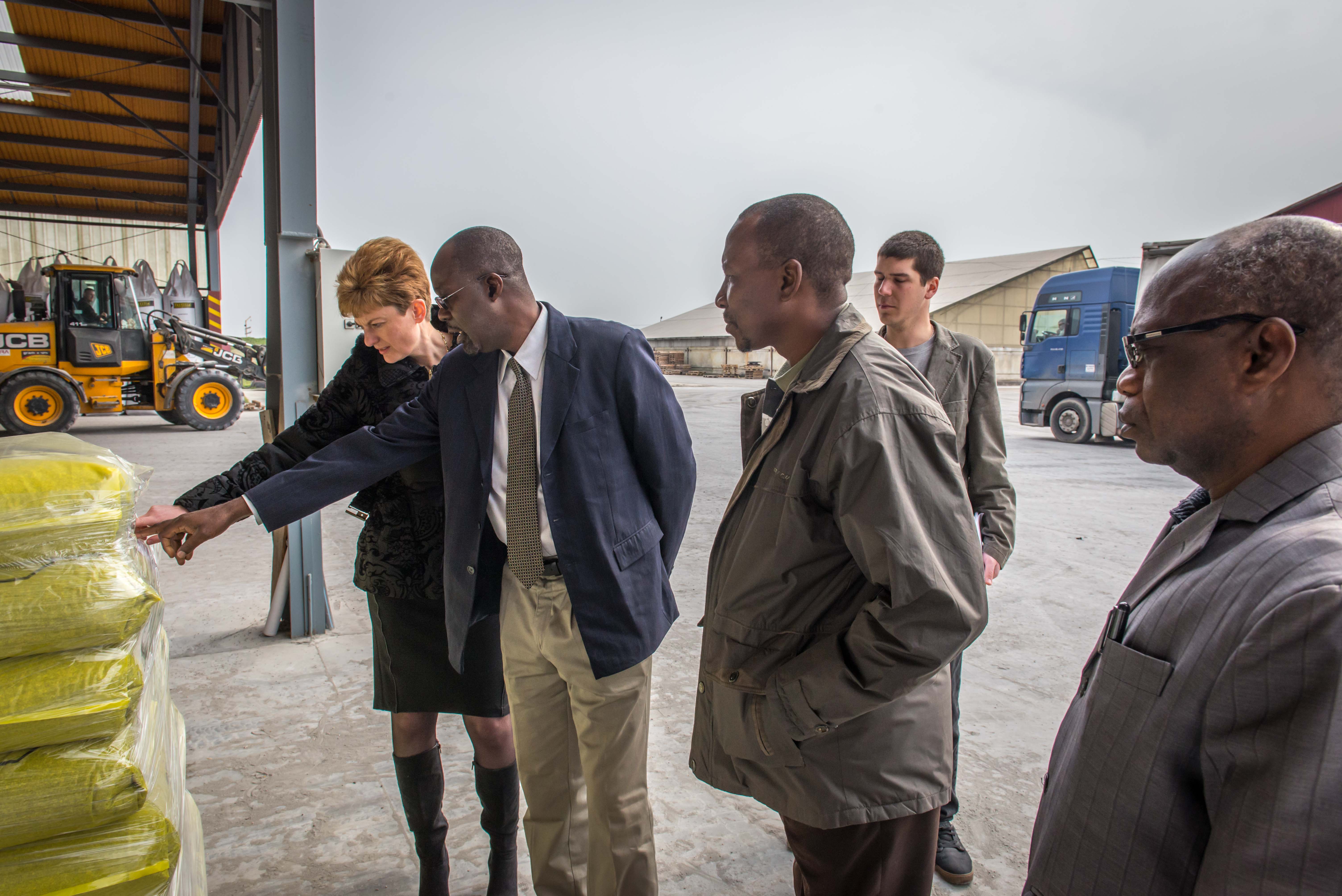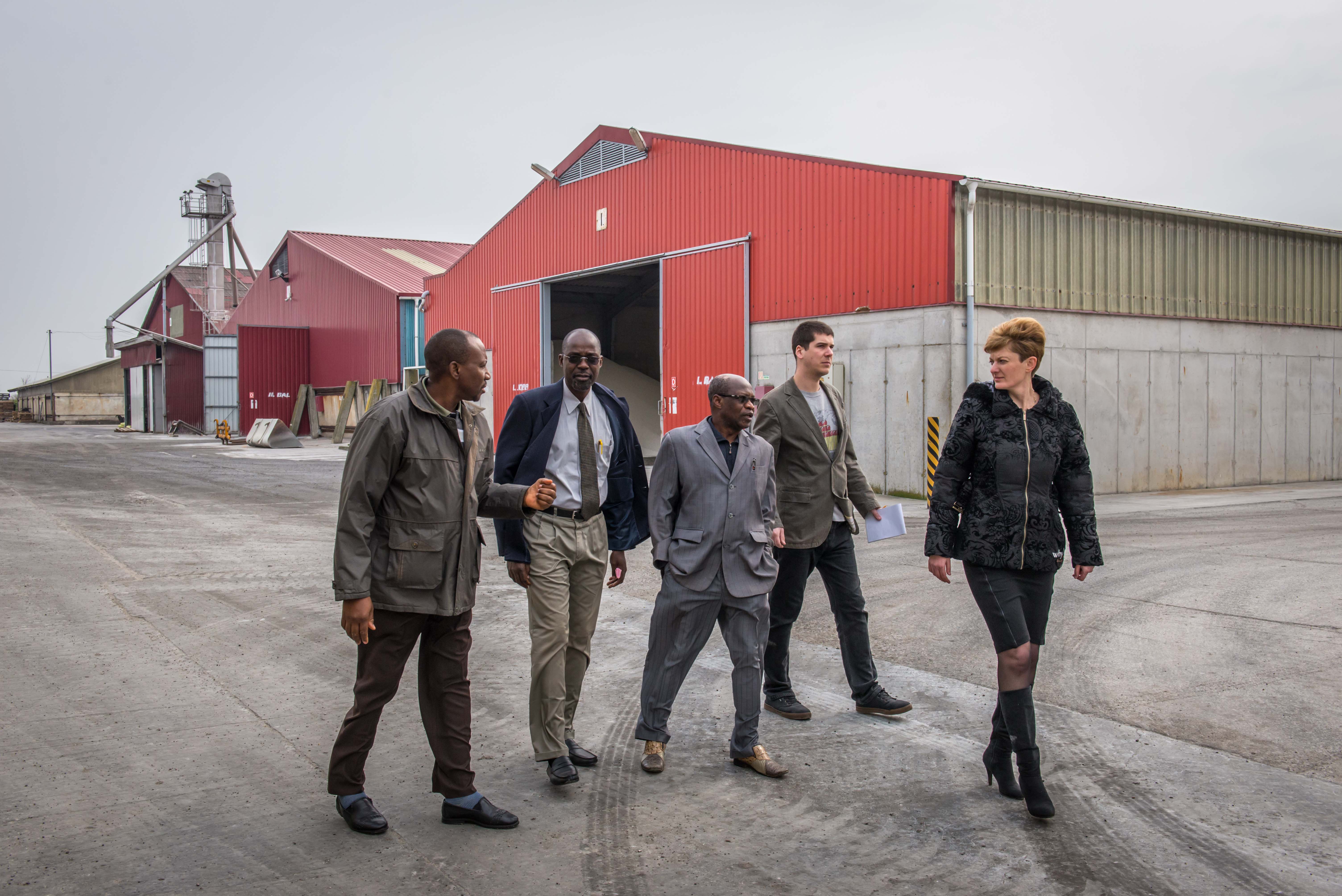Illustrious professors of the famous Ahmadu Bello State University of Nigeria, Prof. Hassan Adamu Zoaka, Prof. Ezra Bako Adams academic and Prof. Haruna Kaita as members of the governmental delegation visited our country to search up-to-date and effective methods of fertilisation.
A significant portion, up to 40% of the Nigerian population acts in agriculture and traditional plant growing especially in the middle and southern part of the country. However, the level of technology applied is rather poor and underdeveloped. That is what the government intends to change and supports the university in taking over practical and useable knowledge on nutrient feedback methods from developed European countries. Pioneering in the field of high level agricultural research activities, the University of Zaria trains soil specialists who keep searching those technologies, by which the out-of-date, environment-loading and unreasonable fertilising practices can be replaced.
In Nigeria as in most African countries, the growth of the population and their feeding mean a serious problem. Their population has grown from 74 Million to 174 Million in 30 years. In order to feed them, effective and yield-secured solutions are needed.
The members of the delegation search for such innovative fertiliser producing plants in Hungary, which do not only define the composition of the optimal fertilisers based on the soil characteristics and the nutrition needs of the plants to be grown but where the way of thinking is also progressive and exemplary. That is how they selected Fertilia.
At our meeting we agreed that „commerce” fertilisers do no good to the soil. What is needed is fertilisers customised for different soils, with which only the type of nutrition in the amount that is necessary will be applied on the arable lands.
According to the creed of the Nigerian professors, an up-to-date and reasonable fertilising technology needs to be realised in order to reach the due yield in an environmentally-friendly method. That is how they will be able to maintain supplying the basic food demand of the population of Nigeria in long terms.
The professors also took part of our plant visit at Rizotec NPK in Enying, where we shared our experiences and negotiated further cooperation with them. Following the analysis of the Nigerian soil, we are going to set up the composition of fertiliser suitable for their needs. This will be followed by a common experiment to make sure of the efficiency of our fertilisers within the given climatic conditions.
The researching teachers now in possession of the knowledge gained may transfer their proposals to the Nigerian Government. Their future aim is to introduce our producer’s approach and technology in Nigeria.
 |
 |
 |
 |


